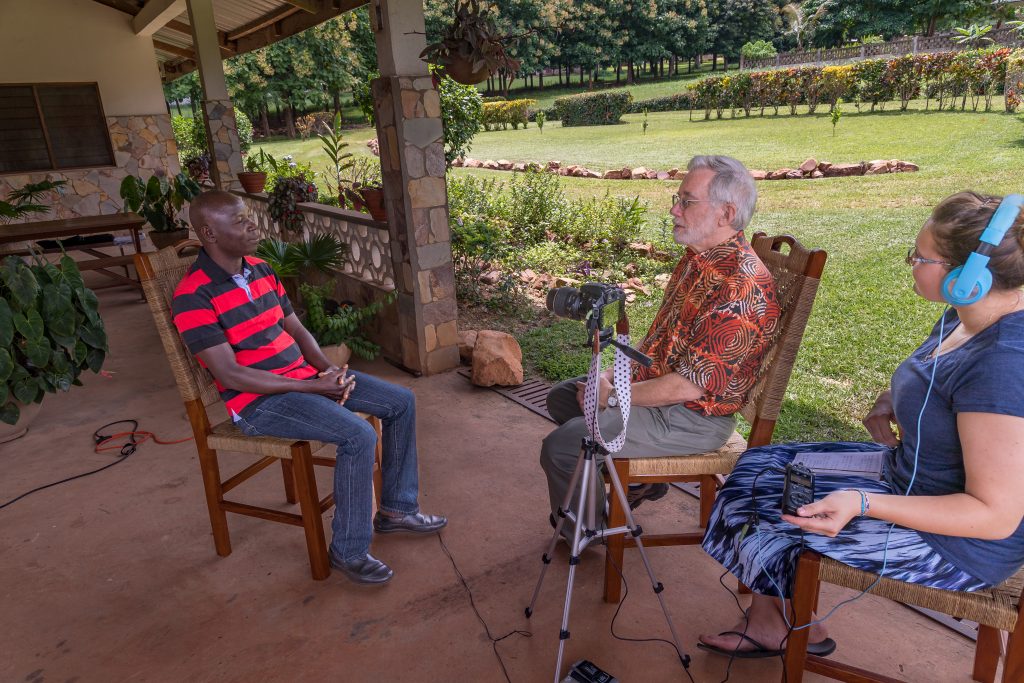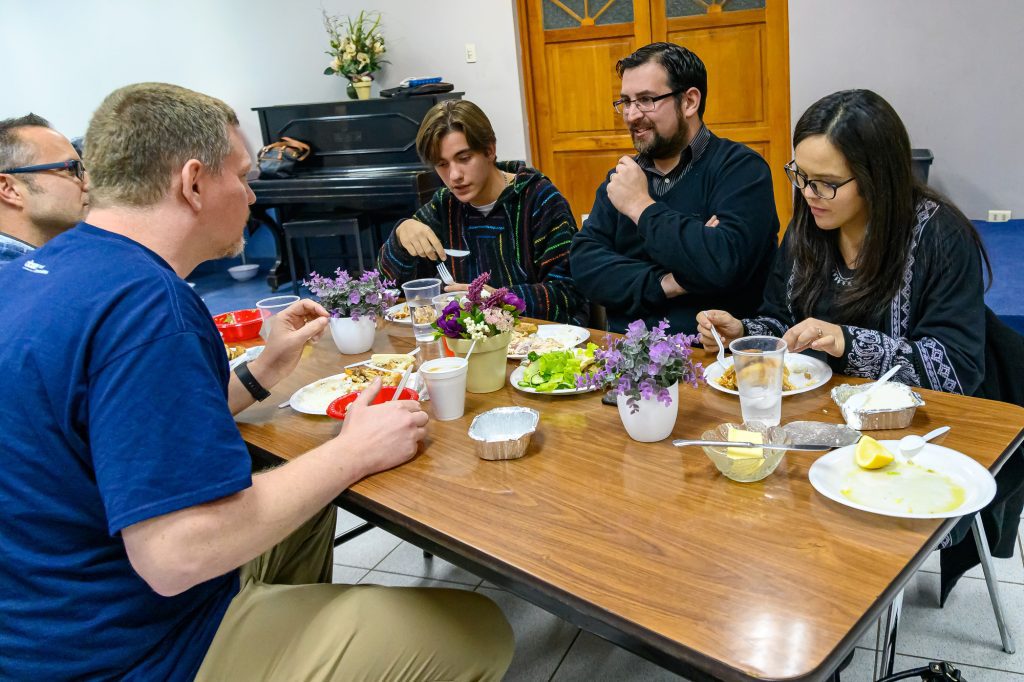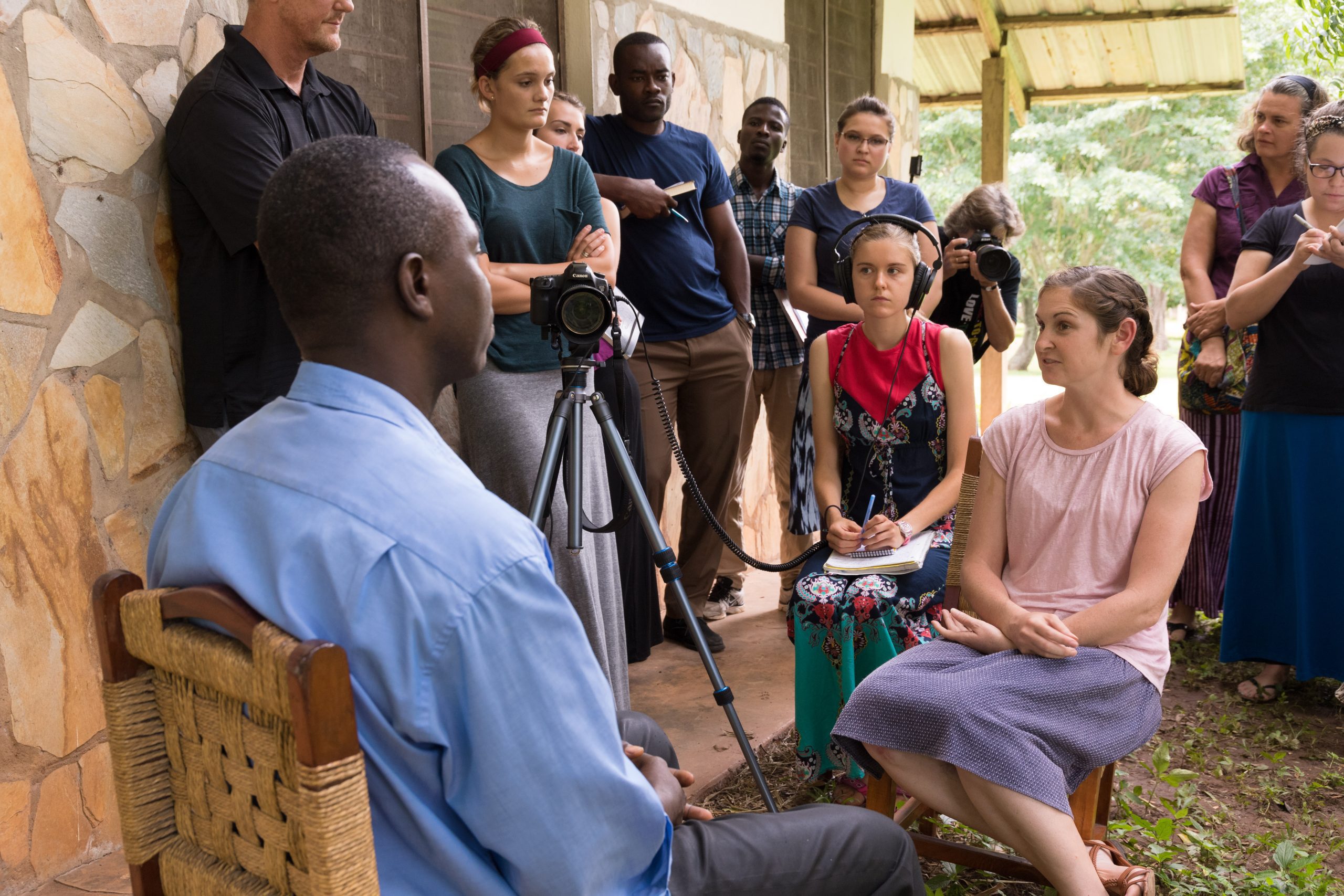The photo above is a practice session where we are demonstrating how to do an interview working with a translator during our Storytellers Abroad Missions Multimedia Workshop in Togo, West Africa. This is where we teach communicators who might be photographers, writers, and videographers how to be producers who can do this as a one-man-band storyteller. Most organizations will not have the resources to send out teams, but most can send one person.
In today’s fast-paced world, effective communication has become more critical. Communicating their mission, goals, and impact is essential for nonprofit organizations to engage with donors, volunteers, and other stakeholders. One way to achieve this is by having a professional communicator who can act as a one-person band if required by budget.

Having a Communications Specialist embedded in the field provides several advantages over having the position primarily at corporate headquarters with occasional travel to the area. One significant advantage is capturing and sharing stories and experiences in real time. This ensures that the content produced is authentic and relevant to the local context and can be used to inform and engage stakeholders more meaningfully.
Another advantage of having a Communications Specialist on the field is the ability to work more closely with the local staff to identify and create content that reflects the work and impact of the organization. As a result, they can collaborate more effectively to capture stories and experiences that are most relevant and impactful to the local community, ensuring that communication efforts are focused and targeted.

Furthermore, having a Communications Specialist in the field can help to ensure that communication efforts are aligned with the local context and culture. They can work more closely with the local staff to understand the nuances of the community, ensuring that communication efforts are sensitive to the local context and that messaging is appropriate and relevant.
In conclusion, having a Communications Specialist on the field provides a unique opportunity to capture and share stories and experiences that reflect the organization’s impact and work, collaborate more effectively with local staff, and ensure that communication efforts align with the local context and culture.

